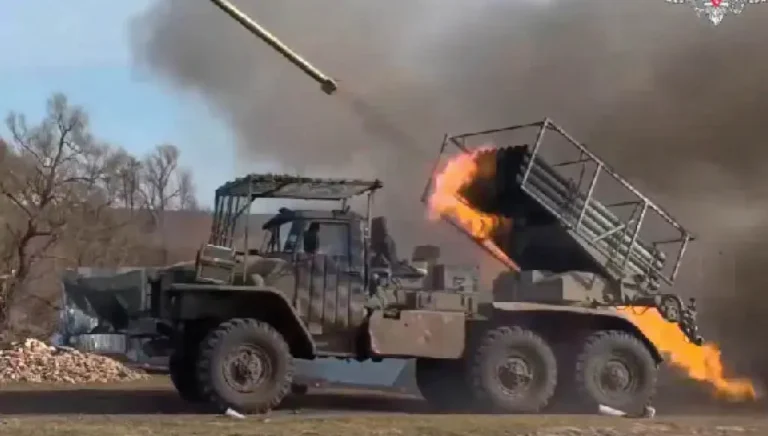
Beachgoers gather under parasols at Sokoa Beach, southwestern France, on June 18, 2022, as heatwave conditions sweep across France and western Europe. - Spain, France and other western European nations braced for a sweltering June weekend that is set to break records, with forest fires and warnings over the effects of climate change. The weather will represent a peak of a June heatwave that is in line with scientists' predictions that such phenomena will now strike earlier in the year thanks to global warming (Photo by GAIZKA IROZ / AFP) (Photo by GAIZKA IROZ/AFP via Getty Images)
Spain, France and other western European nations on Saturday sweltered under a blistering June heat wave that has sparked forest fires and concerns that such early summer blasts of hot weather will now become the norm.
The weather on Saturday was the peak of a June heat wave that is in line with scientists’ predictions that such phenomena will now strike earlier in the year thanks to global warming.
The French southwestern town of Biarritz, one of the country’s most sought-after seaside resorts, saw its highest all-time temperature Saturday of 41 degrees, state forecaster Meteo France said.
Queues of hundreds of people and traffic jams formed outside aquatic leisure parks in France, with people seeing water as the only refuge from the devastating heat.
With the River Seine off-limits to bathing, scorched Parisians took refuge in the city’s fountains.
Temperatures in France could reach as high as 42 degrees C in some areas on Saturday, Meteo France said, adding that June records had already been beaten in 11 areas on Friday.
“This is the earliest heatwave ever recorded in France” since 1947, said Matthieu Sorel, a climatologist at Meteo France.
With “many monthly or even all-time temperature records likely to be beaten in several regions,” he called the weather a “marker of climate change”.
In a major incident in France, a fire triggered by the firing of an artillery shell in military training in the Var region of southern France was burning some 200 hectares (495 acres) of vegetation, local authorities said.
“There is no threat to anyone except 2,500 sheep who are being evacuated and taken to safety,” said local fire brigade chief Olivier Pecot.
The fire came from the Canjeurs military camp, the biggest such training site in Western Europe. Fire services’ work was impeded by the presence of non-exploded munitions in the deserted area but four Canadair plans have been deployed to water bomb the fires.
Farmers in the country are having to adapt. Daniel Toffaloni, a 60-year-old farmer near the southern city of Perpignan, now only works from “daybreak until 11.30am” and in the evening, as temperatures in his tomato greenhouses reach a sizzling 55 degrees C.
Forest fires in Spain on Saturday had burned nearly 20,000 hectares (50,000 acres) of land in the northwest Sierra de la Culebra region.
The flames forced several hundred people from their homes, and 14 villages were evacuated.
Some residents were able to return on Saturday morning, but regional authorities warned the fire “remains active”.
Firefighters were still battling blazes in several other regions, including woodlands in Catalonia.
Temperatures above 40 degrees Celsius (104 degrees Fahrenheit) were forecast in parts of the country on Saturday — with highs of 43 degrees C expected in the north-eastern city of Zaragoza.
There have also been fires in Germany, where temperatures were forecast to go as high as 40 degrees C on Saturday, although only reached 36 degrees C. A blaze in the Brandenburg region around Berlin had spread over about 60 hectares by Friday evening.
Dutch authorities said they expect Saturday to be the hottest day of the year so far.
The UK recorded its hottest day of the year on Friday, with temperatures reaching over 30 degrees C in the early afternoon, meteorologists said.
“I think at the moment people are just enjoying it being hot but if it gets any hotter than this, which I think it is meant to, then that’s a concern,” said Claire Moran, an editor in London.
Several towns in northern Italy have announced water rationing and the Lombardy region may declare a state of emergency as a record drought threatens harvests.
Italy’s dairy cows were putting out 10 per cent less milk, the main agricultural association, Coldiretti, said Saturday.
With temperatures far above the cows’ “ideal climate” of 22-24 degrees C, animals were drinking up to 140 litres of water per day, double their normal intake, and producing less due to stress, it said.
Experts warned the high temperatures were caused by worrying climate change trends.
“As a result of climate change, heatwaves are starting earlier,” said Clare Nullis, a spokeswoman for the World Meteorological Organization in Geneva.
“What we’re witnessing today is, unfortunately, a foretaste of the future” if concentrations of greenhouse gases in the atmosphere continue to rise and push global warming towards 2 degrees C from pre-industrial levels, she added. (AFP)








